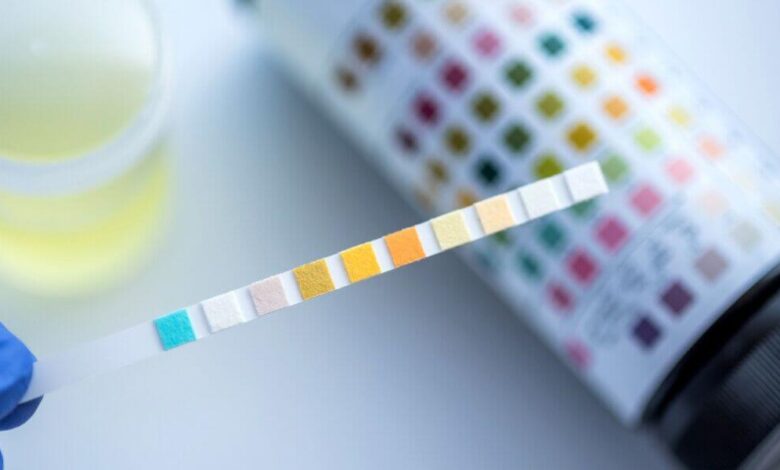How Long Does a Drug Stay in Your System? A Comprehensive Guide

Ever wondered how long that pain pill stays in your body after you take it? Or maybe you’re concerned about a drug test coming up? The time it takes for a drug to leave your system depends on its half-life and other things too. Figuring out drug elimination times is key for many reasons. This includes avoiding interactions or passing a drug test. If you have a question in mind, how long does cocaine stay in your blood? Cocaine can be present in your body for an extended period following your last use. It can be detected in your blood and saliva for as long as 48 hours, in urine for up to 96 hours, and in hair follicles for a duration of up to 90 days.
Understanding Drug Half-Life and Elimination
Knowing the science behind how drugs leave your body can be useful. The main thing to understand is drug half-life. It’s at the heart of drug clearance.
What is Drug Half-Life?
Drug half-life is how long it takes for half of a drug’s dose to get out of your body. It’s usually measured in hours. So, a drug with a half-life of 4 hours means half the drug is gone after 4 hours. After another 4 hours, half of the remaining drug is gone, and so on.
How Half-Life Affects Drug Clearance
It takes more than one half-life to fully clear a drug. Usually, after 5-6 half-lives, a drug is considered gone from your system. Therefore, a drug with a longer half-life will take longer to eliminate. This is why some drugs are detectable for days, weeks, or even months.
Factors Influencing Drug Detection Times
How long a drug sticks around varies from person to person. Individual body differences and drug traits play a role. Many different factors may be in play.
Individual Metabolism
Your body’s metabolism is key. Age is a big factor. Younger people usually metabolize drugs faster. Weight matters because heavier people might need higher doses. Genetics can also affect how quickly your body processes drugs. If your liver or kidneys aren’t working well, it can slow things down. Overall health also makes a difference.
Dosage and Frequency of Use
The amount of the drug you take affects how long it’s detectable. Higher doses usually mean longer detection times. Also, if you use a drug often, it can build up in your body. This means it will take longer to clear out compared to if you only used it once.
Type of Drug and Testing Method
Different drugs have different half-lives. Some stick around longer than others. Also, how you’re tested matters. Urine, blood, saliva, and hair tests have different detection windows. Each testing method is different.
Detection Windows for Common Substances
How long a drug can be detected depends on the drug itself. It also depends on the type of drug test used. Here’s a quick look at some common substances.
Alcohol
Alcohol is detectable in breath for up to 24 hours. It is detectable in blood for up to 12 hours. It is detectable in urine for up to 5 days. In saliva, it can be found for up to 24 hours. How fast your body processes alcohol depends on things like weight and liver function.
Marijuana (THC)
Marijuana can be found in urine for 3-30 days, depending on how often you use it. In blood, it’s detectable for about 3-4 days. Saliva tests can detect it for 1-3 days. Hair follicle tests can find it for up to 90 days. Chronic users will have longer detection times.
Opioids
Opioids like oxycodone, morphine, and heroin are usually detectable in urine for 1-3 days. In blood, they can be found for up to 24 hours. Saliva tests might detect them for 1-4 days. However, detection times vary based on the specific opioid you used.
Cocaine
Cocaine can be detected in urine for 2-4 days. In blood, it’s detectable for 1-2 days. Saliva tests can find it for up to 2 days. Hair follicle tests can detect it for months. Cocaine breaks down quickly in the body.
Can You Speed Up Drug Elimination?
There are ways to help your body get rid of drugs, but keep your expectations realistic. It’s also important to note that you shouldn’t ever use illicit substances. Doing so can put your health at risk.
Hydration and Diet
Drinking enough water helps your kidneys and liver work well. Eating a healthy diet also supports these organs. Some people think certain foods or drinks speed up drug metabolism, but this isn’t always true. Don’t believe every myth you hear.
Exercise and Physical Activity
Exercise can boost your overall metabolism. However, it might not significantly speed up drug elimination. Staying active is good for your health, but it’s not a quick fix.
Detox Products and Their Effectiveness
Be careful with detox products. Many make big claims. These products might not have scientific backing. Some might even be harmful.
Important Considerations and Disclaimer
Remember, drug detection times can vary a lot. Don’t make decisions based only on online info. It’s always a good idea to seek out professional medical advice.
When to Seek Professional Guidance
Talk to a doctor or pharmacist for info about your medicine. Don’t try to treat yourself. Don’t make choices based only on what you read online.
Legal and Ethical Implications
Drug testing and medication adherence have legal and ethical sides. Be aware of these issues. Seek guidance from healthcare professionals if you have concerns.
Conclusion
Many things affect how long a drug stays in your system. These include drug half-life, metabolism, and the type of test used. Everyone is different, so detection times vary. If you’re unsure about a medication, ask a professional. Stay informed and be responsible.




